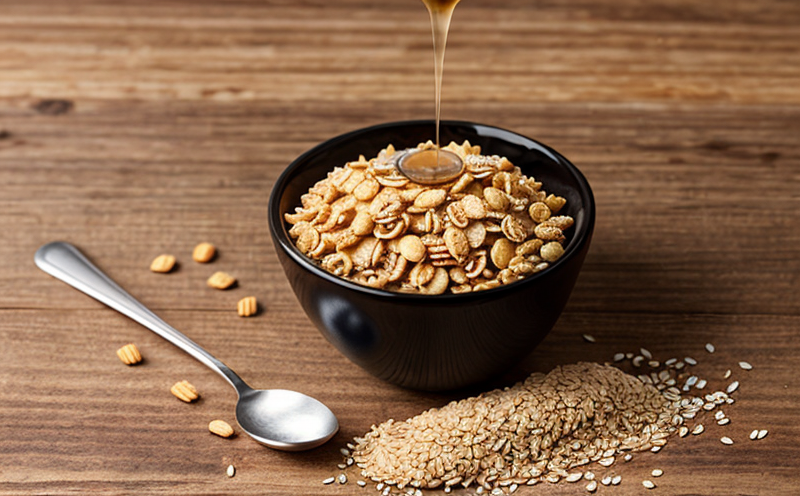ISO 14505 Paralytic Shellfish Poisoning PSP Detection Validation Method Development Test
The ISO 14505 standard provides validated methods to detect and quantify paralytic shellfish poisoning (PSP) toxins in various food products, particularly those derived from marine sources. This service focuses specifically on the development and validation of a detection method for PSP toxins using this international standard.
Paralytic shellfish poisoning is caused by consumption of certain bivalve mollusks such as mussels, clams, and oysters that have accumulated saxitoxin or related analogues. These toxins are produced by harmful algal blooms (HABs). The consequences can be severe, leading to paralysis, respiratory failure, and even death if not properly managed.
The ISO 14505 standard sets out specific requirements for the development and validation of detection methods for PSP toxins in food. This includes the use of validated analytical techniques such as liquid chromatography with tandem mass spectrometry (LC-MS/MS), which is currently the most reliable method available.
The process involves several key steps:
- Sample collection and preservation
- Preparation of samples for analysis including homogenization, extraction, and purification
- Detection using LC-MS/MS following validated methods
- Validation of the method against criteria outlined in ISO 14505 to ensure accuracy, precision, linearity, robustness, and reproducibility.
The validation process is crucial as it ensures that any method used for detecting PSP toxins meets stringent international standards. This not only enhances consumer safety but also ensures regulatory compliance with relevant food safety regulations.
Our expertise in this area allows us to provide a comprehensive service, from initial consultation on the most suitable testing methods, through to full validation and reporting of results. We work closely with our clients to ensure that their specific needs are met, whether they are looking for routine testing or more complex method development projects.
Our team is led by experienced food safety professionals who stay up-to-date with the latest developments in this field. By leveraging cutting-edge technology and adhering strictly to international standards, we can offer reliable and accurate PSP toxin detection services that meet both domestic and international regulatory requirements.
| Key Steps | Description |
|---|---|
| Sample Collection | Collection of representative samples from the source of concern, ensuring proper preservation techniques are used to maintain toxin integrity. |
| Preparation for Analysis | Involves homogenization, extraction methods like QuEChERS (Quick, Easy, Cheap, Effective, Rugged and Safe), and purification steps tailored to isolate PSP toxins effectively. |
| Detection Methodology | Liquid chromatography coupled with tandem mass spectrometry for precise quantification of PSP toxins in food samples. |
| Validation Criteria | Ensuring the method meets ISO 14505 standards through rigorous testing to guarantee reliability and accuracy. |
Our commitment extends beyond just providing a service; we aim to educate our clients on best practices in PSP toxin detection. By offering training sessions, webinars, and detailed reports, we empower our customers with the knowledge needed to maintain high standards of food safety.
Scope and Methodology
The scope of this service includes the development and validation of a method for detecting PSP toxins in cereal and grain products using ISO 14505 guidelines. This involves several critical aspects:
- Detection of saxitoxin (ST) and related analogues.
- Validation against international standards to ensure accuracy and precision.
- Analysis of a wide range of cereal and grain products including wheat, barley, rye, oats, etc., to identify potential contamination sources.
The methodology follows the ISO 14505 standard closely:
- Sample Collection: Representative samples are collected from various points in the supply chain to ensure broad coverage.
- Sample Preparation: Samples undergo homogenization, extraction using appropriate solvents, and purification steps as per ISO guidelines.
- Detection: LC-MS/MS analysis is performed to detect and quantify PSP toxins. This process involves calibration of the instrument, ensuring that it meets all necessary quality control criteria.
- Validation: The method is validated against ISO 14505 standards through rigorous testing to ensure reliability, accuracy, precision, linearity, robustness, and reproducibility.
This comprehensive approach ensures that the methods we develop are not only reliable but also meet all regulatory requirements. This service is particularly important for food manufacturers who need assurance that their products do not contain harmful levels of PSP toxins.
Benefits
- Consumer Safety: Ensures that products are free from harmful PSP toxins, protecting public health and safety.
- Regulatory Compliance: Helps clients meet international standards such as ISO 14505 for PSP toxin detection.
- Risk Management: Identifies potential contamination sources early in the supply chain to mitigate risks effectively.
- Quality Assurance: Provides detailed reports and training sessions to help maintain high standards of food safety.
The ability to reliably detect PSP toxins is crucial for maintaining consumer confidence. By ensuring that products are free from harmful levels of these toxins, we contribute significantly to public health and safety.
Environmental and Sustainability Contributions
- Safe Harvesting: Ensures that only safe and uncontaminated crops are harvested for processing into food products.
- Eco-Friendly Processes: By detecting PSP toxins early, we minimize the risk of contaminated products reaching consumers, thereby reducing waste in the supply chain.
- Sustainable Supply Chains: Helps maintain sustainable practices by ensuring that only safe and uncontaminated products enter the market.
The detection and validation of PSP toxins not only benefits human health but also supports environmental sustainability. By preventing contaminated products from entering the food supply chain, we contribute to a safer and more sustainable world.





